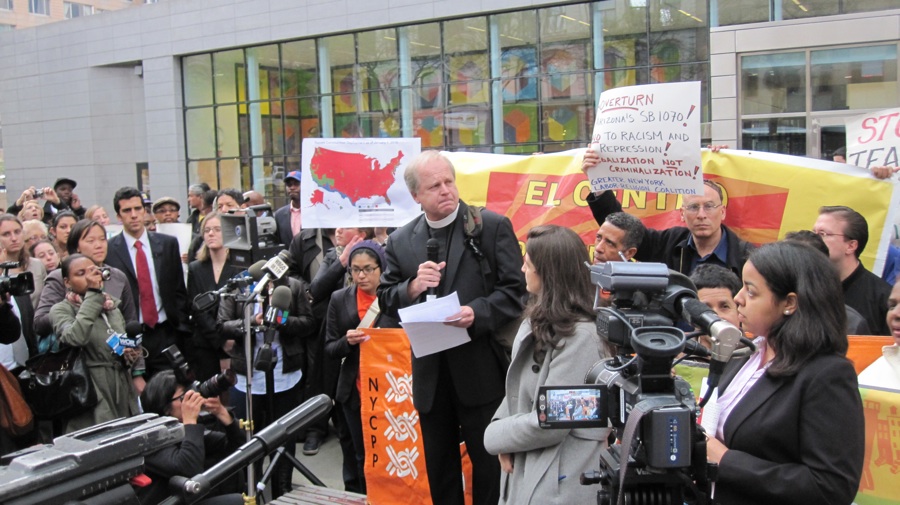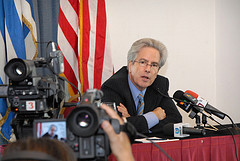Beyond Borders
Local-Federal Partnership to Enforce Immigration Law Needs Clarity, Report Says
April 7, 2010 By Alison Bowen
The 287(g) program, which deputizes local officers to enforce federal immigration law, needs improvement, according to the Office of Inspector General (OIC).
Last week, the OIC, part of the Department of Homeland Security, released a report scrutinizing the 287(g) agreements with Immigration and Customs Enforcement (ICE).
The program is considered a cost reducer and a force multiplier for the federal government. According to the report, in fiscal year 2008, removals from 287(g) officers made up 9.5 percent of all ICE deportations that year.
According to the report, local law agencies don’t always comply with terms set out in the memorandums of agreement, which each agency signs when joining the program.
A few examples:
Only one of seven jurisdictions the OIG visited had a steering committee, required to meet on a regular basis and assess the program. In places where officers were only deputized with task force authority, they had also used 287(g) authority in jails.
Also, agencies showed inconsistent contact between 287(g) officers and ICE agents. Some spoke daily with ICE, but dozens of deputized officers had no direct contact with ICE.
ICE concurred with all but one of the 33 recommendations, which suggested collecting information for the circumstances surrounding stops, searches and arrests, along with the race and ethnicity of those stopped.
According to ICE’s response in the report, “This would require the collection of data beyond that which DHS and DOJ require of their own law enforcement officers and agencies.”
Other recommendations included having a representative on advisory committees to “provide insights into civil rights and civil liberties issues as part of the approval process.”
In a letter attached to the report, Robert F. De Antonio, the director of the Audit Liaison Office, asked that 16 of the recommendations be “considered resolved and closed based on the action ICE already has taken.”
In total, the Inspector General issued 33 recommendations, including improving officer guidance, oversight, data collection, training and public information.
Julia Preston of the New York Times reported on April 2 that after the report’s release, immigrant advocacy groups again called for the program’s termination.
This study arrives a year after the federal Government Accountability Office examined 287(g), issuing a report titled “Better Controls Needed over Program Authorizing State and Local Enforcement of Federal Immigration Laws.” In that report, the GAO also suggested clarifying local officers’ authority and specifying data collection expected from local agencies.
After the GAO report, ICE established ”strict benchmarks” for the program, and required a focus only on criminal immigrants, according to a July letter from John Morton, ICE assistant secretary, to The New York Times.
About Alison Bowen
Alison is a Missouri native and New York City freelance writer who has wanted to cover Latin America since studying Spanish in Central America. After moving to Brooklyn, her work has appeared in The New York Times, the Daily News, the Manhattan Times and Women’s eNews. She earned a master’s degree in journalism and Latin American and Caribbean studies at New York University. Her thesis focused on immigration policies after September 11, including counterterrorism measures, and their effects on the daily lives of immigrants in New York City.





2 Comments
[…] Remember to read Alison Bowen’s weekly blog on immigration issues called Beyond Borders, which is posted every Wednesday. This week’s piece is entitled “Local-Federal Partnership to Enforce Immigration Law Needs Clarity, Report Says.” […]
[…] Beyond Borders: A local-federal partnership to enforce immigration law needs clarity, according to a recent study. […]
Comments are closed.